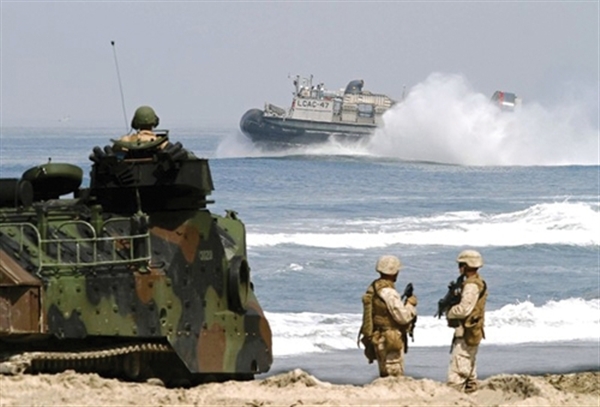WASHINGTON, Aug. 9, 2010 — The chairman of the Joint Chiefs of Staff stressed the need for strong garrison leadership today, underscoring the effects longer periods at home between deployments may have on troops and their families in the future.
Navy Adm. Mike Mullen spoke to soldiers and airmen at Joint Base Lewis-McChord, Wash., today. By October, more than 30,000 troops will be “at home” there for the first time since 2003.
Soldiers throughout the Army also will soon enjoy a slower deployment tempo, Mullen noted, as major units are projected to have twice as long at home as deployed by the end of 2012. About 70 percent of those units are expected to have a 2‑to‑1 “dwell time” ratio by the end of 2011, he added.
“That’s based off the projections we see right now, so that is a huge change,” Mullen said. “This is a big change, and if you are a leader, leading when things are changing is the most difficult kind of leadership, because it’s less predictable.”
The chairman explained that although more time at home is long overdue, a slower-paced military always must be ready for the unpredictable. Leaders must ensure troops and their families are cared for, he said, stressing the importance of garrison leadership.
“We’ve got to focus on those things that we have not been able to focus on, because we haven’t had the time, as we’ve been putting units together and rotating in and out of war,” the admiral said. “You need to think about what’s happening next in an unpredictable world and environment.”
Mullen cited the rising military suicide rate since 2001 to illustrate his point. A recent Army report outlined how units, in an effort to maintain readiness, have overlooked psychological issues soldiers may have. Leaders have overlooked signals and behaviors, including misconduct, that may have indicated an increased risk of suicide for some soldiers, Army officials said last month.
Many troops in today’s audience are too young to remember the military in peace time, Mullen said. As fewer troops are needed in the fight, he added, he and Army officials recognize that garrison leadership must improve.
The rate of soldier suicides has risen in each of the past five years. In fiscal 2009, 160 soldiers took their own lives, while there were more than 1,700 attempts. Army suicides exceed the national average.
Although the Army receives much media attention for its suicide rates, Mullen noted, every service’s suicide rate has “dramatically” increased since 2004. This trend is a strong indication of the stress the military has undergone since Sept. 11, 2001, he added.
“At the core of that is strong garrison leadership,” the chairman said. “We’ve got to make sure we get it right across the full spectrum — units, soldiers, families. The only way I know how to get at [suicide prevention] is through leadership and leaders focusing on their people.
“There’s just too many people taking their lives, and we’ve got to get ahead of that,” he said. “We’ve got to stay in touch with them. That’s a leadership function.”
The Army, and military as a whole, Mullen said, must focus on building resilience from servicemembers and their families’ first day in the military. The heart of the military lies in its leadership and how each member takes care of each other, he said.
“Every single person in this audience is a leader,” he said. “People have to be bold and step in, and this has to do with taking care of each other, leading and mentoring those who come behind you. You can’t just passively sit and watch this happen.”
Source:
U.S. Department of Defense
Office of the Assistant Secretary of Defense (Public Affairs)

 von
von 